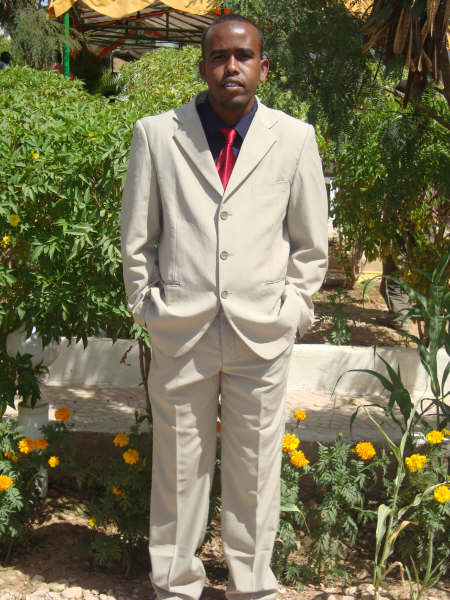|
A Troubled Year for Somaliland ís Media

 Every
nationís information flows through a variety of media system
intended for progress and for its peop leís guidance.
Somaliland media has done a commenda ble job in the
development and community awareness of their country. Radios,
Televisions, Web-sites, Magazi nes and Journals transmit full sense
of persuasions, su ggestions, criticisms, warnings, advertisements ,
congr atulations and vacancy announcements. Every
nationís information flows through a variety of media system
intended for progress and for its peop leís guidance.
Somaliland media has done a commenda ble job in the
development and community awareness of their country. Radios,
Televisions, Web-sites, Magazi nes and Journals transmit full sense
of persuasions, su ggestions, criticisms, warnings, advertisements ,
congr atulations and vacancy announcements.
The wide benefits from media means it acts as a public good in
developm ent of a nation. The right to receive information and to
the freedom of expression is set out in the African charter for
Human and Peoplesí Rights and also Somaliland ís constitution. This
must be respected by Somaliland government.
The media is an educator and key information source that can promote
peace, stability and transparent governance. For example, Somaliland
now has 8 private newspapers, two independent private television
stations and one radio stations, for one state local radio stations
and one televisi on station. This rapid expansion has
generated some problems, including inadequately trained journalist,
poor provisional standards and week-self regulation. More over,
Somaliland government much controlled the private media and remains
government owned. The monopolization of media by the government
undermines media freedom and popular trust, and creat es space
of distortion and rumor.
The single greatest obstacle facing Somaliland media were the
illegal arre sts made by the government. 27th March 2009, four
journalists were arr ested by the government. Three of the
journalists were released in 8 ho urs later while the other
one was remained in prison, later on Ahmed Sale ban Dhuxul was
caught by the police at the parliament compound while the house of
elders had a session to extend the presidentís term in office in the
morning 28th March 2009. The detained reporter, Ahmed Saleban Dhuxul
was an independent correspondent of Somaliland Space Channel (SLSC)
and radio Horyaal.
Mr. Dhuxul was denied access to enter the hall of the meeting while
the other journalists were allowed to take part the assembly of the
House of elders. He was released after government failed to confirm
his guilty to the court.
Interviewed on the phone, one of the released reporters told us
Jamah iriya news paper at that time, that his arrest happened at
Jigjiga-yar road, where he was taken to the central police station.
The reporter, Mr: Liibaan Maweel Shire spent the night at the police
station and in the morning 28th March at 10:00 am the police caught
Dhuxul and sent him at the police station. He also added that the
government has recently incre ased a systematic campaign
against the press. This arrest was condem ned by Union Of
Somaliland Journalists (USJ) and indicated that the gover
nment in recent months arrested a number of journalists like Curad
the editor of Yool newspaper and tortured number of them, as the
HCTV Camera man who was beaten in Dacar Budhuq district east of
Hargeisa.
On 12 July 2009, Mr. Dhuxul and his colleague Sayid were arrested
again. The government linked their arrest as they works for a
private radio called Radio Horyaal which the government believes
that it belongs to the main opposition party named Kulmiye.
On 29th July 2009, at 6:30pm Somaliland police closed down the Horn
Cable TV office in Hargeisa. The police later on headed to the
studio located east suburb of the city; how ever after a long
tedious quarrel and brushes between the reporters and staffs at the
studio, the police forcefully arrested the news head of HCTV, Mr.
Mohamed Abdi (llig).
Finally, we are criticizing this systematic campaign against the
private media. But the question is how can we save our local media?
|
Farhan Abdi Suleiman
(Oday)
Student at University of
Hargeisa, Somaliland
Email: oday1999@yahoo.com
Phone: 252-2-4401132 |
|